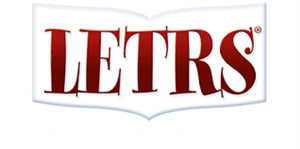- Fayette County Public Schools
- English Language Arts & Reading
Elementary English Language Arts & Reading
-
Fayette County Public Schools (FCPS) is on a strategic path to ensure all literacy instruction is aligned with the science of reading. We are committed to building the capacity of teachers by providing excellent professional learning in structured literacy. See the LETRS box on the side menu for more information.
Core classroom instruction includes explicit, systematic, and cumulative instruction in the five essential components of reading -- phonological awareness, phonics, fluency, vocabulary, and comprehension -- as well as oral language, writing, spelling and handwriting. Reading and writing experiences are delivered through a gradual release of responsibility in order to build independent readers, writers, and thinkers.
The Georgia Department of Education is responsible for developing and maintaining performance standards for Georgia students. Georgia Standards of Excellence (GSE) are fully implemented in Fayette County Public Schools.
GSE for each grade level may be found on the GaDOE website:
Fayette County Curriculum (FCC) includes a vertically aligned scope and sequence, lesson plans, formative and summative assessments, and multi-sensory tools. The FCC enables teachers to address the Georgia Standards of Excellence using a collection of resources through a structured literacy approach.
ReadyGEN is the ELA resource adopted by the district in 2017. ReadyGEN offers complex texts that are strategically designed around science, social studies, literature and other common themes/topics to build background knowledge and vocabulary systematically from Kindergarten through 5th grade. The reciprocal nature of reading and writing is also emphasized through ReadyGEN.
Practices you should see reflected in your student's classroom experience include:
- Phonological and phonemic awareness -- students in primary grades will be playing with the sounds of our language. Students will be looking in mirrors to see how different sounds are formed, rhyming, clapping, tapping, and building words from sound to print, which is pivotal for reading and spelling.
- Explicit and systematic phonics instruction -- rather than memorizing words, teachers will lead students through the study of words using a continuum of skills from Kindergarten through 5th grade. Students will investigate phonemes, graphemes, morphemes, syllables, word origin, and much more as they learn to decode, spell, and use increasingly complex words.
- Knowledge building and vocabulary -- the ultimate goal in reading is for students to understand what they read. Students will study individual word meanings as well as how words fit together to create meaningful text.
- Language development -- reading, writing, speaking, and listening are interrelated skills. Students will work on all domains of language development as they increase the complexity of what they say, read, and write. Rather than just a "writing rule," students will learn that syntax and semantics are also "reading tools" that writers use to convey meaning. Grammar, sentence variation, and the mechanics of language are explored as they read and as they write.
- Writing -- the Georgia Standards of Excellence stress the importance of the writing-reading connection. Throughout students' elementary experience, they will integrate foundational writing skills with composition skills to become skilled independent writers.
Contact
-
-
Phone: 770-460-3990Caroline SchmittCoordinator of Elementary ELATresha MitchellSecretaryext. 1241
-
LETRS Initiative
-

Fayette County Teachers are participating in dynamic professional learning -- Language Essentials for Teachers of Reading and Spelling ('LETRS')
ELA Connections through Schoology
-
Have you seen the parent resources for each learning module available in Schoology?



